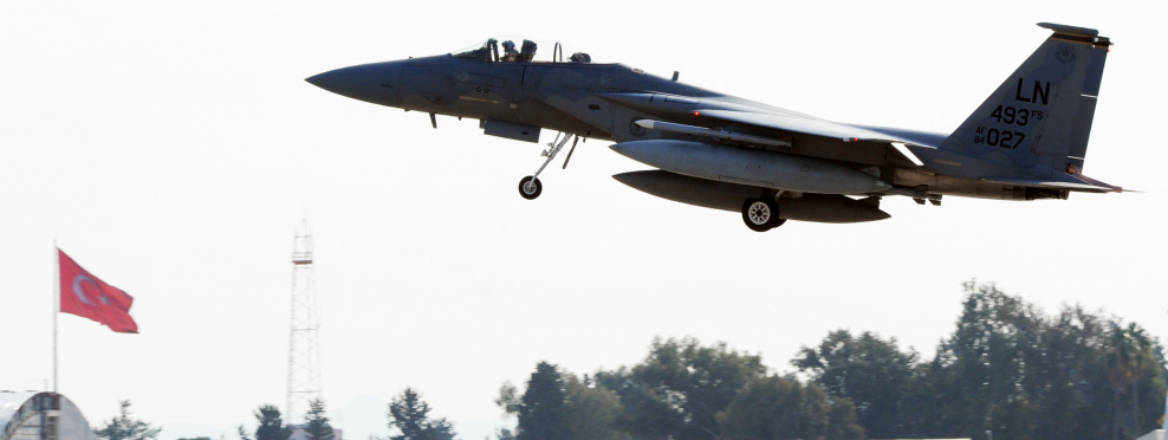Turkey, the US and the S-400: A Counter-Narrative
Regardless of how difficult Erdogan’s Turkey may now be, it is a key state in NATO and must be treated as such.
There is a theory that President Recep Tayyip Erdogan of Turkey purchased the Russian-made S-400 system to protect himself from another coup attempt, not as a capability for the Turkish armed forces more generally. This would align with another – and perhaps equally a conspiracy theory – that argues that the US could turn off the existing air defence protection network around the Turkish president by remote control, thereby allowing the Turkish Air Force to attack Erdogan with its (American supplied) attack aircraft.
Either way, the purchase and delivery of the Russian S-400 air defence system has had significant consequences for the Turkish administration. The US has responded to the acquisition by planning to remove Turkey from the F-35 programme – a move widely supported by members of Congress, with more mixed signals from President Donald Trump.
This latest spat between NATO and Turkey is another in a long line of disputes between the parties. Turkey plays a key role in NATO which often goes unrecognised and underappreciated. It also has the largest population of any NATO member after the US and Germany, as well as the largest military in Europe. Quantity does not always beget quality, but the strength of the Turkish military cannot be simply set aside by Allies.
Turkey is, geographically, in a key position that has historically been important as a location where the Warsaw Pact met NATO, and more recently as an access point to the Middle East. Yet today, the junction between Europe and Asia is as important as it was in the time of Marco Polo.
It would be hard for anyone to ignore this geostrategic location in a new era of great power competition. Turkey is essential for both NATO’s mission in restraining Russia, the EU’s interest in controlling migration into Europe, and as a corner to US aspirations to contain China. This is not a new dilemma for the Turkish people however; their strategic location has always required them to walk a tightrope in balancing competing power blocks.
The geopolitical importance of Turkey to NATO is demonstrated by the essential military infrastructure which has been built up in the country. Incirlik Airbase, as highlighted in the May 2019 issue of Military Technology, is the obvious example, one of the six airbases in NATO countries which holds US Air Force sub-strategic nuclear bombs. Turkey has also hosted various elements of the NATO Military Command Structure and has regularly contributed to NATO military operations.
Throughout its history, Russia has sought access to the Mediterranean and beyond through the Black Sea. That access requires passage through the Turkish Straits (the Bosporus and the Dardanelles) waters, governed by the Montreux Convention. Turkey has become the monitor and moderator of these efforts and, consequently, Ankara serves as a check on Russian ambitions in the region but can also limit NATO’s ability to counteract Russian operations in the Black Sea if it so chooses. Without Turkish support, for example, NATO would find it difficult to prevent a future Russian blockade of the Port of Odessa, a step which could paralyse the Ukrainian economy.
Turkey has also had an indispensable role during the recent migrant crisis. The country currently holds 3.6 million refugees, according to the UN Human Rights Commissioner. More importantly, Turkey’s willingness to take these refugees protected Europe from bearing the brunt of the crisis. Clearly, Turkey is a significant player both in Europe and the Middle East.
Despite these critical factors, NATO Allies have often failed to acknowledge the significance of Turkey’s position within both NATO and its region with either words or actions. Turkey and the US have clashed over the US engagement in Syria, specifically Washington’s relationship with the Kurds. Problems between the West and Turkey can be traced further back to the Iraq War when the Turkish parliament refused to let US troops cross over the border into Iraq, while European allies refused to place an Allied Mobile Force in Turkey as a preventive measure before the war.
European states continue to criticise President Erdogan for, among other things, his approach to journalists, the economy, centralisation of powers, interference in the legal system, lack of external governance and democratic principles, and human rights. To these states, Turkey has failed to live up to the expectations of a state aspiring to join liberal institutions (such as the EU) and to be a ‘good member’ of the international order.
Yet, if Western diplomats wish to be successful at achieving their goals, states cannot be reduced to some binary choice based on their current attitude towards democratic principles. Neither can the West attempt to beat states, such as Turkey, about the head until they submit.
When no alternatives to the US existed on the international stage, such tactics could be effective. But states like Turkey can now turn to the likes of Russia and China. The return of great power competition, like it or not, requires NATO, the EU, the US, and others to change their behaviour. Alternatives to the Western sphere of influence mean, by extension, that countries such as Turkey have greater bargaining strength.
A recognition of both Turkey’s importance and growing economic, political and military alternatives to the West necessitates a different approach if NATO wishes to bring Turkey back into the fold. The US need not give Turkey the F-35s regardless of whether the Turks ultimate operationalise the S-400 system. Incentives must, however, continue to be offered. And Turkey has shown itself to be open to a more positive approach from other NATO Allies.
Such incentives may be best poised to take place on the economic front, particularly as Turkey’s financial management is now coming under increased scrutiny, and its currency has depreciated sharply. As President Trump confronts trade disputes with China, the US needs a partnership with a country such as Turkey more than ever. And the US now has an opportunity to show that, regardless of its differences on military affairs with Turkey, it stands by the country’s efforts to stabilise its economy, because that is in the interests of all NATO member states.
Peter Roberts is Director of Military Sciences at RUSI.
Seth Newkirk is a senior undergraduate studying Peace, War, and Defence at the University of North Carolina and an intern for the Military Sciences department at RUSI.
The views expressed in this Commentary are the authors, and do not represent those of RUSI or any other institution.
WRITTEN BY
Professor Peter Roberts
RUSI Senior Associate Fellow, Military Sciences


